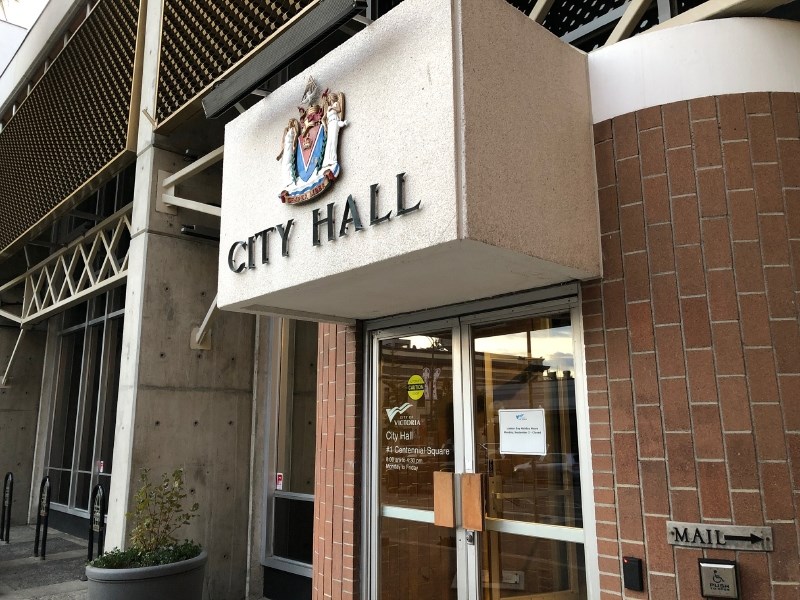A byelection to fill one empty seat on Victoria city council could cost up to $170,000 even if the city scales down the election process, a staff report says.
The need for a byelection was triggered by Laurel Collins’s successful campaign to represent Victoria as a member of Parliament. Collins officially resigned on Nov. 4, a little more than a year after she was elected to council.
A staff report to be considered by council on Dec. 12 recommends a scaled-down approach for the byelection, with fewer polling stations on election day and reduced communications to remind the public of the election.
Even with these modifications, city staff peg the cost to fill one seat at nearly half the price of the October 2018 general election.
Staff estimate the modified process will cost between $140,000 to $170,000. The 2018 general election, which filled nine council seats, including the mayor, cost about $360,000.
Councillors are currently paid $45,384 a year, with an annual increase tied to inflation, according to figures provided by the city, which means the estimated cost of having a byelection is equivalent to more than three years of a councillor’s pay.
Staffing costs for a byelection are a significant portion of the price tag.
Mayor Lisa Helps acknowledged it’s an expense for the city, but said she thinks having an MP who was once a Victoria city councillor will help give Victoria a voice in Ottawa.
She said she would support the modified election process unless she hears of compelling alternatives.
“From my perspective, the sooner the better,” she said. “We have a council of nine for a reason and that’s what’s required by the legislation based on our population.”
With one fewer councillor, others are taking on more work, sitting on boards that Collins used to, she said.
Preparing for the byelection will divert city staff from projects, resulting in three-month delays on a number of issues, which include improvements to the city website’s accessibility and fencing regulations for deer management. It will also affect staff’s ability to compile council and committee meeting minutes in a timely manner during the first few months of 2020.
The modified election process seeks to provide adequate voting opportunities and community engagement while limiting cost and added burden on staff time.
According to the report, fewer people tend to vote in byelections than in general elections. The report cites an example from Saanich, in which only 17 per cent of voters cast ballots in a 2017 byelection, versus 34 per cent in the municipality’s 2018 general election.
The recommendation from staff would reduce the number of polling stations on election day to four from 12 in the 2018 general election.
The recommendation includes up to eight advance voting opportunities — all at City Hall — up from five in 2018. Two of the advance opportunities in 2018 were at City Hall, while the other three were at the University of Victoria, Camosun’s Interurban Campus and Our Place.
Increasing the number of votes cast in advance ballots decreases the burden on polling stations on election day, according to the staff report, and holding all advance voting opportunities at City Hall will save money and staff time.
While the city would normally notify residents of an election by mailing voter cards and taking out newspaper and online advertisements, staff are recommending the city use only existing communication channels, like the city website, newsletter and social media.
The report also outlines the general election process, with a cost of between $320,000 to $360,000, as an option, but does not recommend that council go that route.
If council accepts the recommendation to use a modified election process, staff will report back on timing, cost estimates and the appointment of a chief election officer in 2020.
Once an election officer is named, the election must take place on a Saturday within 80 days.
Staff estimate a byelection following the recommended process would take place on March 14.
regan[email protected]



